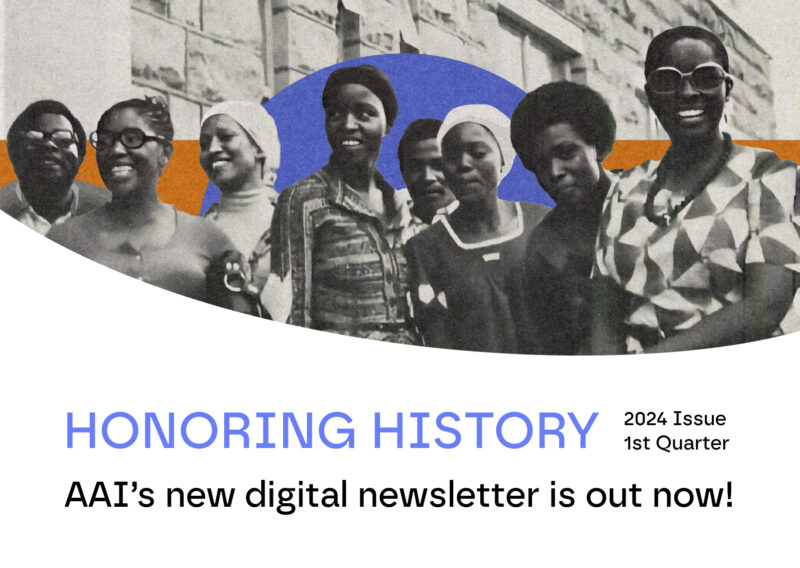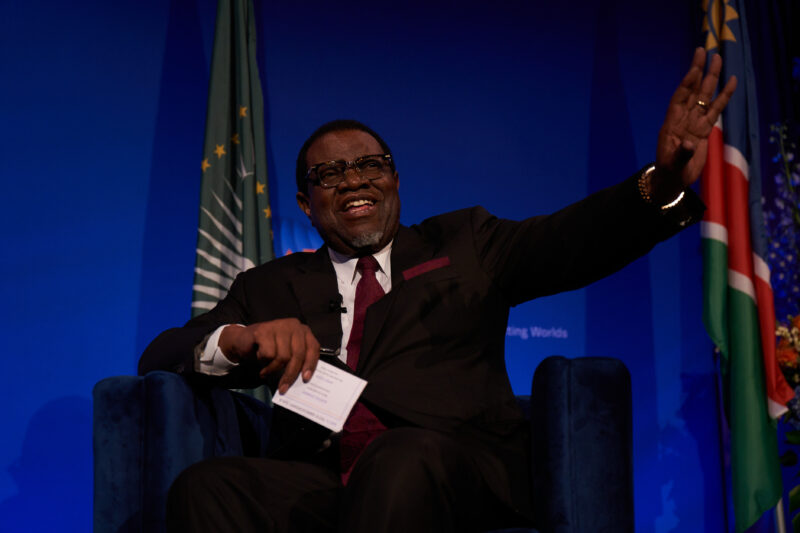Unleashing Women’s Potential to Boost Economic Progress in Africa
By Amini Kajunju
Africa is on the move and has entered into an exciting phase of rapid transformation and growth. Global economic stats boast the fact that the continent of Africa is one of the fastest growing regions in the world, and forecast economic growth of 5.6 percent in 2013.
Yet we know that for Africa to build on this momentum of tremendous growth and robust economic development, everyone must be included in the continent’s development process.
Compelling evidence confirms what we’ve all known, that women are powerful drivers of economic development. Today, the level of women’s entrepreneurship in Africa is at nearly 40 percent, higher than in any other world region. The Africa Competitiveness Report 2011 revealed that African women comprise up to 70 percent of people involved in informal cross-border trade, an activity that contributes $18 billion a year to southern Africa economies alone.
The vital role of women in contributing to Africa’s socio-economic development is nothing new to The Africa-America Institute. Dating back to our founding, AAI has recognized the enormous potential of women and committed itself to providing formal education and practical training to prepare African women for a “new Africa”. In 1959, AAI formed a Women’s Africa Committee to specifically focus on the unique challenges experienced by African women, and to ensure their full participation in building strong, inclusive nations following decades-long colonial rule.
Our female alumni are some of Africa’s – and indeed, the world’s – most accomplished leaders. The late Dr. Wangari Maathai, the first African woman to receive the Nobel Peace Prize, launched the Green Belt Movement in Kenya, which empowered communities, with a focus on women, to conserve the environment and improve quality of life. President Joyce Banda, a successful businessperson, is the first female president of the Republic of Malawi. These are just two of our distinguished female alumni making waves at the highest levels.
And it’s no secret that education, particularly higher education and advanced professional training, must be at the heart of Africa’s development to foster greater economic productivity and to build an educated and skilled workforce for 21st century jobs.
The 2012 Africa Business Investors Conference, organized last September by AAI under the theme, “Jobs for Africa’s Future”, drew attention to women’s remarkable contributions in boosting business profitability and economic growth in Africa.
High-level keynote addresses and plenary sessions from African heads of state and senior African, international and U.S. leaders made a strong case for dramatically expanding women’s participation in economic life to increase entrepreneurship and business ownership as well as equip them with the skills for successful employment in a knowledge-based global economy.
Former Chilean president Michelle Bachelet, who is currently executive director of UN Women, pressed African nations in a keynote address to “unleash” the full potential of women to achieve job creation and sustain rising economic growth rates.
“By opening doors to women across Africa, allowing women’s entrepreneurial talents to flourish, and developing successful businesses that create jobs that stimulate the economy, we can make economic growth rise even higher,” said Bachelet. “The whole economy gains momentum when women have access to education and training.”
Through the Transformational Leadership Program (TLP), known as TLP, AAI offers non-degree professional certificate and business degree training for African managers of small and medium-sized enterprises and Africa-based NGOs in the fields of health, education, environment and entrepreneurship. Of our 300 TLP alumni, more than 60 percent are dynamic women working in a diverse range of organizations, sectors and communities. We are redoubling efforts with the aim of quadrupling the impact of TLP by training a total of 1,000 more leaders – many of whom will be women – by 2015.
Investing in women is smart business and essential to spurring economic growth. UN Women confirmed that enhancing women’s economic participation improves national economies and advances development progress.
The continent of Africa is clearly making progress. AAI was deeply honored to pay tribute to Africa’s only two female heads of state, President Ellen Johnson Sirleaf of the Republic of Liberia and President Joyce Banda, at our 28th Annual Gala for championing the rights of women and their full inclusion in economic development to boost economic growth. This is just one example of progress at the leadership level.
We must do much more to ensure everyone has an opportunity to participate in African development to accelerate the steady economic progress taking place in African nations. Expanding access to higher education and advanced training for both women and men is required to prepare African professionals for today’s global economy and to meet local and global market demands for highly skilled workers. This has been AAI’s mission since its founding and as we move into our 60th anniversary year, we’ve remained committed to harnessing all of Africa’s human capacity to move the continent towards sustainable development.




